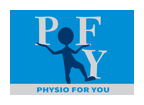Arthritis
One of the most common forms of arthritis is Osteoarthritis. It damages your joints through wear and tear. It can be painful and depressing . There is no cure, but there are ways of managing the condition and making life earier for sufferers. Physiotherapy is an important part of that management.
HOW DOES OSTEOARTHRITIS AFFECT PEOPLE?
Most people develop some degree of osteoarthritis especially as they get older. The changes are permanent and exist even when there are no symptoms. Osteoarthritis affects people in varying degrees. Some people may be symptom-free or suffer only mild or intermittent pain provoked by episodes of increased use or minor trauma. For some people symptoms can be disabling and, when it involves the larger joints of the body such as the hip or the knee, the severity of the problem may require surgical treatment.
Wear and tear of our joints may occur due to ageing, injury, prolonged poor posture, over use of joints or excess weight.
DIAGNOSIS
Osteoarthritis is one of 150 different forms of arthritis for which there are different treatments. Your general medical practitioner can make a diagnosis. Treatment may include physiotherapy and/or medication.
Treatment methods may include gentle passive movement, heat, electrical treatments, muscle stimulation, aquatic physiotherapy (hydrotherapy), splints and advice on preventing further joint damage through self management.
Specific exercise prescription is also a proven therapy in the management of arthritis.
SYMPTOMS AND SIGNS
• Recurring pain or tenderness in a joint
• Stiffness, particularly early morning stiffness
• Swelling in a joint
• Obvious redness or heat in a joint
• Inability to move a joint
HOW PHYSIOTHERAPY CAN HELP
Physiotherapists are highly qualified in the assessment and treatment of the affects of osteoarthritis. Physiotherapy can:
• Reduce pain
• Improve movement and posture
• Strengthen muscles
• Improve independent function
• Assess and treat biomechanical problems that may exacerbate the pain and loss of function


HOW YOU CAN HELP YOURSELF
• Always respect pain
• Avoid over-stressing joints
• Avoid jerky/sudden movements
• Don’t overload joints
• Take care with lifting
• Watch your weight
• Improve your body alignment to take stress off any arthritic joints
• Use splints or walking aids as advised
• Don’t overdo activity or exercises
EXERCISES – HOW DO THEY HELP?
Exercises for people with osteoarthritis should be individually prescribed. Your physiotherapist can devise a programme of exercises to suit your condition. As a general rule remember if any exercise hurts then DON’T DO IT.
Recent physiotherapy research has consistently shown exercise to be effective in management of osteoarthritis of the knee.
EXERCISES HELP BY
• Maintaining or increasing movement
• Improving joint lubrication and nutrition
• Restoring muscle balance
• Improving circulation
• Improving strength and stability
• Improving poor posture
Don’t forget to maintain your GENERAL FITNESS LEVEL – this helps you feel better and retain your healthy joints. Gentle regular exercises such as swimming, exercising in water (hydrotherapy), walking or cycling are recommended.
REST
Whilst rest is an important part of managing your osteoarthritis, it is usually balanced with exercises and activity. In particular rest is required when joints are HOT, SWOLLEN OR PAINFUL.
HEALTH REBATES
You may consult a physiotherapist either directly or by referral from your medical practitioner. Most private health insurance funds offer rebates for physiotherapy treatment. Physio For You offers on-the-spot HICAPS claiming.
Some patients are eligible for Medicare rebates for physiotherapy, contact us for more information.
YOUR COMPLIMENTARY COPY SUPPLIED BY:
PHYSIO FOR YOU
Jacqueline Eaton
Director
Ph: 02 4392 1547
Fax: 02 4380 8410
Email: Jacqui_physio@live.com.au



